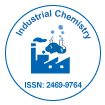Nuestro grupo organiza más de 3000 Series de conferencias Eventos cada año en EE. UU., Europa y América. Asia con el apoyo de 1.000 sociedades científicas más y publica más de 700 Acceso abierto Revistas que contienen más de 50.000 personalidades eminentes, científicos de renombre como miembros del consejo editorial.
Revistas de acceso abierto que ganan más lectores y citas
700 revistas y 15 000 000 de lectores Cada revista obtiene más de 25 000 lectores
Indexado en
- Índice Copérnico
- Google Académico
- Búsqueda de referencia
- Directorio de indexación de revistas de investigación (DRJI)
- Universidad Hamdard
- EBSCO AZ
- OCLC-WorldCat
- director académico
- Fundación de Ginebra para la educación y la investigación médicas
- Pub Europeo
Enlaces útiles
Revistas de acceso abierto
Comparte esta página
Abstracto
Effect of Food Processing Industries Effluents on the Environment: A Case Study of MOHA Mekelle Bottling Company, Tigray, Ethiopia
Teklit Gebregiorgis Amabye
There is an increasing awareness on the problems of environmental pollution not only in developing countries like Ethiopia but worldwide. Among the sources of this problem is effluent discharge from industries, particularly food processing industries. To determine the extent of this problem in moha soft drink company Mekelletigray Ethiopia. The effluents were collected and analyzed for solids, organics, nitrogen, pH and total coliform using standard procedure. The results showed that total solids (TS) varied 440 to 703 mg/L, total suspended solids (TSS) from 0 to 230 mg/L and total volatile solids (TVS) from 223 to 514 mg/L. The pH of the effluents varied from 6 to 8, the COD from 684 to 3,192 mg/L, the TN from 5.6 to 33.6 mg/L and the total coliform from 43 to 150 MPN/100 mL of effluent sample. Compared to the effluent limitation guidelines given by American Environmental Protection Agency, the TSS, and COD for most of the industries are well above the limits while the TKN, pH and coliform count are within the acceptable limit.
Revistas por tema
- Agricultura y acuicultura
- Alimentación y Nutrición
- Bioinformática y biología de sistemas
- Bioquímica
- Ciencia de los Materiales
- Ciencia general
- Ciencias Ambientales
- Ciencias Clínicas
- Ciencias farmacéuticas
- Ciencias Médicas
- Ciencias Sociales y Políticas
- Ciencias Veterinarias
- Enfermería y atención sanitaria
- Física
- Genética y biología molecular
- Geología y Ciencias de la Tierra
- Ingeniería
- Inmunología y Microbiología
- Química
Revistas clínicas y médicas
- Anestesiología
- Biología Molecular
- Cardiología
- Cirugía
- Cuidado de la salud
- Dermatología
- Diabetes y Endocrinología
- Enfermedades infecciosas
- Enfermería
- Gastroenterología
- Genética
- Inmunología
- Investigación clínica
- Medicamento
- Microbiología
- Neurología
- Odontología
- Oftalmología
- Oncología
- Pediatría
- Toxicología

 English
English  Chinese
Chinese  Russian
Russian  German
German  French
French  Japanese
Japanese  Portuguese
Portuguese  Hindi
Hindi